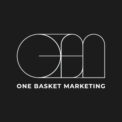Google Ads vs. Facebook Ads: Choosing the Best Platform for Your Company
Two digital advertising behemoths stand tall: Google Ads and Facebook Ads. These platforms each have unique advantages, and selecting the appropriate one can have a considerable impact on the success of your marketing activities.
Let’s walk you through the finer points of Google Ads and Facebook Ads, allowing you to make an informed business decision. Let’s get started with this complete comparison, recognizing the strengths and nuances of each platform.
Google Ads Explained
The Search Engine Giant
Google Ads, formerly Google AdWords, is the company’s premier advertising platform. It primarily uses Google’s search engine and partner websites to provide advertisers with access to a large user base actively seeking information and solutions.
Google Ads' Benefits
Keywords are essential for PPC ads. These are the terms that people use to find certain items and services in online search engines. PPC success is mainly reliant on a comprehensive examination of possible keywords. Using keyword research tools such as SEMrush or Google’s Keyword Planner, you can uncover keywords with high search volumes and low competition.
Suggestions for Keyword Analysis
- High Intent Audience: Users looking on Google are frequently in the research or buy phase, making them more likely to convert.
- Keyword Targeting: By properly targeting terms relevant to your business, you can ensure that your advertising reaches a specific audience.
- Ad Extensions: Google Ads allows you to incorporate extra information such as phone numbers, website links, and locations to improve ad visibility.
- Measurable Results: Powerful analytics tools provide specific data that enable you to fine-tune your efforts.
Important Google Ads Considerations:
- Competition: High demand for prominent keywords can result in higher cost per click (CPC).
- Initial Learning Curve: Setting up effective advertisements may necessitate a learning curve at first.
- Ad Rank: When it comes to ad placement, Google takes into account aspects such as ad quality, relevance, and landing page experience.
Learning about Facebook Ads
The Social Media Empire
Facebook Ads is the advertising division of Facebook, one of the largest social media platforms in the world. It provides a variety of ad formats that appear in users’ newsfeeds, Stories, and other Facebook ecosystem placements.
Strengths of Facebook Ads
- Audience Targeting: Facebook offers highly specific targeting choices based on demographics, interests, behaviors, and connections.
- Visual Appeal: Rich media forms such as photos and videos can effectively interest users.
- Remarketing: Reach out to users who have previously connected with your website or app.
- Cost-Effective: Facebook Ads might be inexpensive depending on your target audience.
Important Facebook Ads Considerations
- User Intent: Social media users may not have immediate purchasing intentions.
- Ad Fatigue: Constant exposure to the same advertisements might cause user fatigue.
- Ad Policies: It is critical to follow Facebook’s ad policies to prevent ad disapproval.
Selecting the Best Platform
- Consider Your Objectives : Clarify your marketing objectives before making a selection. Is your goal to generate instant purchases, raise brand exposure, or nurture leads over time? Google Ads is great for capturing high-intent leads, whereas Facebook Ads is great for brand visibility and engaging potential buyers earlier in the purchasing process.
- Understand Your Audience : Understanding your intended audience is critical. Facebook Ads’ advanced targeting can be a game changer if you have a thorough understanding of your potential customer’s demographics, hobbies, and online behavior. Conversely, if your target audience actively searches for certain products or services, Google Ads may be a better option.
- Budget Distribution : Consider your budget and how it relates to the costs of each platform. The cost-per-click (CPC) for Google Ads can vary greatly, but Facebook Ads frequently provides more cost-effective solutions. To maximize ROI, allocate your budget strategically.
- Advertisement Designers : Your ad creatives are critical to the success of your campaign. Google Ads favors text-based ads, but Facebook Ads supports visually appealing layouts. Make sure your ad creative is in line with the platform’s strengths and user expectations.
- A Comprehensive Approach : For many firms, the optimum option is a combination of both platforms rather than an either-or choice. Integrating Google Ads with Facebook Ads can result in a more comprehensive digital marketing approach that captures a larger audience and nurtures prospects at different phases of the buyer’s journey.
The Influence of Landing Pages
The design of a landing page can make or break a pay-per-click campaign. Check that the landing page supports the ad’s message, is simple to use, and loads quickly. A great CTA is essential whether you want them to buy, sign up for your newsletter, or contact you.
There is no one-size-fits-all solution in the Google Ads vs. Facebook Ads dispute. Depending on your aims and target audience, both platforms provide distinct advantages that can help your business. Choosing the best organization for success in Mumbai that helps you understand the strengths and intricacies of each platform and adapting your advertising plan accordingly is the key to success.
Remember, it’s not about picking one over the other; it’s about making informed decisions that generate results while respecting each platform’s capabilities. By doing so, you may fully realize the potential of digital advertising for your company.
